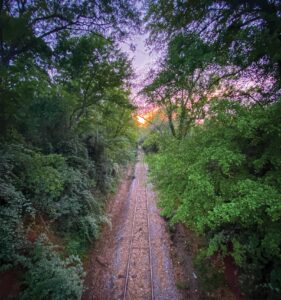We are going to take a break this month from equine nutrition and focus on something that requires you to look at yourself in the mirror. Of course I have to add something equine. 2020 has definitely been a year to remember, or not to remember. Politics, religion, job losses, COVID-19, masking up everywhere, and losing freedoms that we are all so used to enjoying.
How would you really know whether the person you happen to meet lost a loved one recently, is going through a divorce, just had an argument with his or her spouse, lost a job, etc.? The other person may be a bit short with you. He or she may just be in a very different place in life that you are not aware of. Same with a horse. This is another place where horsemanship and humanship connect.
Horsemanship? Humanship? Dogmanship? Stockmanship? They all intersect.
I come into contact with many horse owners, all different disciplines. Wherever there are horses, there are dogs. And some cattle to round it out. I had to reflect on how I manage employees, how I treat other folks, how I work with my horses and dogs. Instead of “breaking” horses, I “gentle” them. I apply pressure, and then release pressure when the expectation is achieved. I watch for the change in attitude when the understanding is understood by both. What it comes down to is that I am treating humans with the principles of true horsemanship. I make sure that my expectations are clear, but not forced. I do not get angry if my horse does not understand my expectation, since it is my job to be clear and concise about what that expectation is. If it is not understood, chances are it is my fault and I must find a way that we can both understand. Sure, there are still “horsemen” out there who are forceful, have the hands of a butcher, and train with fear as the main tool in their toolbox. It is possible that force is all some folks know. But I do not degrade them. I try to show them a better way by letting my horse do the talking.
I think that we do not always extend the patience and understanding to humans that we extend to our animals. Our animals are our safe space, our passion, our lifestyles, and our personal therapists. We can really learn from our animals. Imagine a world where everyone is happy to see you no matter who they may be. Now more than ever you need to have patience, be fair, be kind, and be more understanding than you’ve ever been.
In the last few months I have visited retail stores, restaurants, feed stores, etc. I’ve witnessed some rather “interesting” human behavior. When I say interesting, I am talking about embarrassing human behavior. Especially on certain social media sites. I have to wonder who is really behind the keyboard. I think we all know what I’m talking about. Granted, these days have been stressful for most folks, but aren’t these the days that we need to be kind to each other? Take a moment, take a deep breath, and give the benefit of the doubt. Do we really know what the other person is going through at that moment? Let’s give each other a little space, both literally and figuratively. Maybe a very heart felt “hello” would be more welcome than the chastising you may receive for not noticing the arrows at the grocery store. All has not been negative though — I’ve seen some of the kindest acts as well. That has been rather heartwarming.
It’s also all in the timing. Timing is definitely everything. It’s how I met my wife! Fifteen minutes one way or another, my life would be very different. Here is another example of horsemanship and humanship. If you want your child to take out the trash, would it be best to ask when they are watching a movie, reading a book, or walking by the trash can? I’d bet that you would get a better result if you ask when they are close by the trash can. Same with a horse. You will get a better result if you ask when the horse is balanced, collected, and set up for success. What would happen if we treated people this way? If we want better results, we need to brush up on our timing.
Just as important, we need to slow our hands while riding. Quick hands reduce feel. A horse will learn to brace if we have quick hands. With humans, we need to slow down our tongues. Think before we speak. Pause before we answer too quickly with what might be the wrong answer. Horsemanship and humanship — it’s a thing.
I’ll leave you with this. We were out shopping the other day and saw one of those decorative sayings that you hang on your wall. It said, “BE NICE OR GO HOME.” I should have bought it and carried it around everywhere. It is now my motto!!!
Be Kind. Before you press “post” on Facebook, pause for a moment and think about whether it’s really that important. Leave the drama on your keyboard.
Adios for now!






